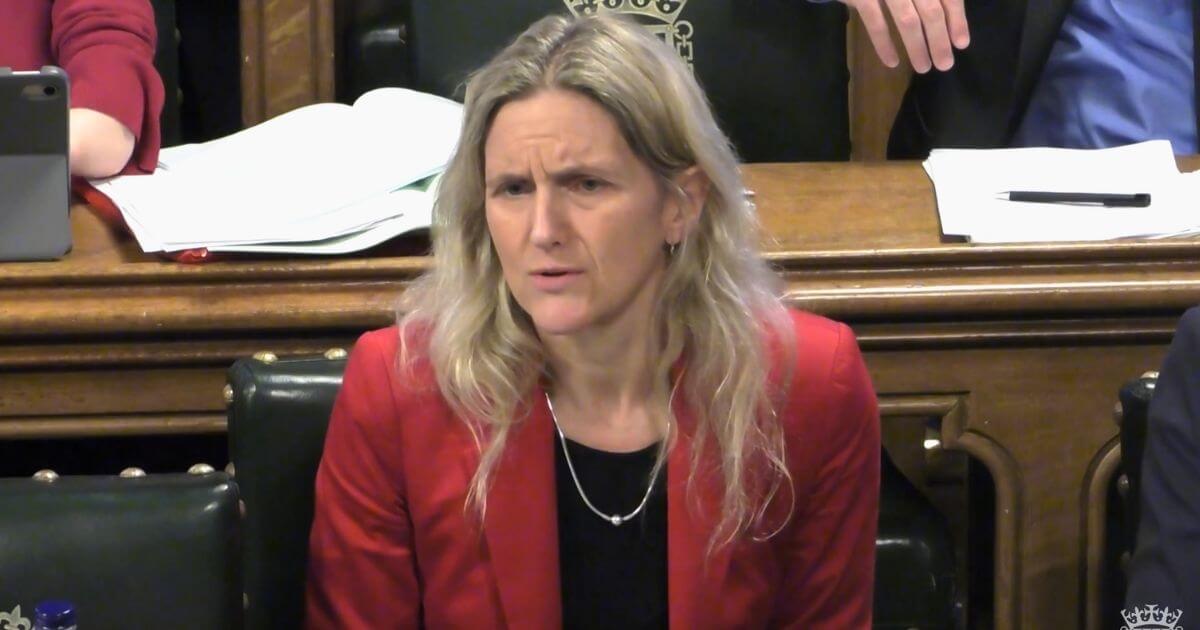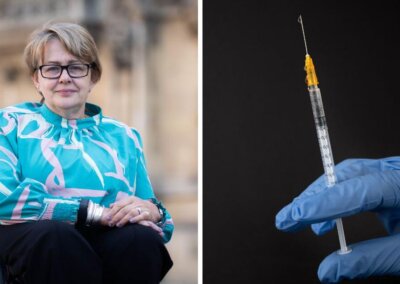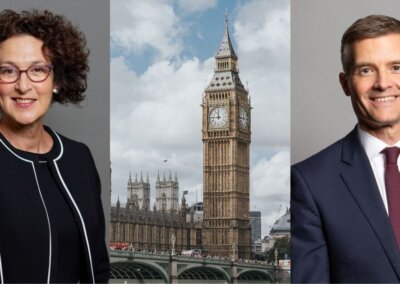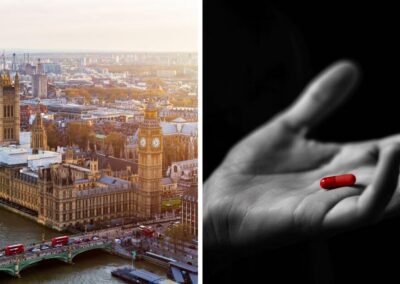The assisted suicide Bill Committee scrutinising Kim Leadbeater’s Terminally Ill Adults (End of Life) Bill met for its seventh and final week of sittings to finish its line-by-line scrutiny of the Bill.
On Tuesday 25 March, MPs on the Committee debated key amendments of the Bill until after midnight. MPs rejected amendments designed to prevent doctors from profiting from assisted suicide, as well as an amendment to prevent advertising for assisted suicide; to ensure doctors would have to flag ‘notifiable events’; that annual reviews and statistics would need to be published regarding assisted suicide provision; and that the assisted suicide industry would be prevented from ‘marking its own homework’.
MPs also discussed how the assisted suicide Bill could fundamentally change the NHS and would give Ministers broad “Henry VIII powers” by bypassing Parliament and making vital decisions through regulations.
Fundamental change to the NHS
Kim Leadbeater MP tabled an amendment (NC36) to her Bill just days before the final Committee day, which proposes “a fundamental change to the NHS in England” according to lead Bill critic, Danny Kruger MP. The amendment intends to alter the NHS Act 2006 so that it includes reference to ‘voluntary assisted dying services’. Kruger argued that, if passed, this will “take a red pen to [Aneurin] Bevan’s legacy, to fundamentally change the NHS from one that is ‘designed to secure improvement…in the physical and mental health’ of the people of England and Wales, and dedicated to ‘the prevention, diagnosis and treatment of…illness’, and to add to that founding clause “to end” the lives of terminally ill people”.
“I will be blunter than the drafters have been. New clause 36 changes the NHS from being the national health service to the national health and assisted suicide service. That is its direct implication”.
“Furthermore, the new clause is also designed not only to alter fundamentally the national health service, but to enable the private sector to be paid from NHS funds to end the lives of terminally ill people—and not only that, but to do so with a Henry VIII power so broad as to enable any changes in the NHS or any law to facilitate that goal”, he added.
Danny Kruger was not the only MP to reference Henry VIII powers. Sean Woodcock helpfully explained that “‘Henry VIII clauses’ are clauses in a Bill that enable ministers to amend or repeal provisions in an Act of Parliament using secondary legislation, which is subject to varying degrees of parliamentary scrutiny”.
“The expression is a reference to King Henry VIII’s supposed preference for legislating directly by proclamation rather than through Parliament”.
He added that “we should not let [the use of the term ‘Henry VIII powers’] distract us from the serious question of this new clause, which could result in a significant transfer of power from Members of this House to the Secretary of State, and it is not clear what that power will be used for”.
Liberal Democrat MP Sarah Olney also criticised the broad Henry VIII powers under Clause 33 saying it “creates a power to determine which events should be notified to the commissioner and how to enable the exchange of information. That is all to be decided by the Secretary of State, with the detail removed from the Bill”.
Amendments to prevent doctors from making profit from assisted suicide rejected
MPs debated amendments (360, 527) designed to prevent doctors from profiting from the administration of assisted suicide, which could create an incentive for doctors to approve requests.
In an exchange with Bill sponsor Kim Leadbeater, Olney criticised the notion of “reasonable remuneration” for medical practitioners involved in the provision of assisted suicide saying that “We will find in time that the word ‘reasonable’ will come to have its own accepted definition, but it does not preclude a profit margin”.
While Leadbeater interjected saying that it would preclude a profit margin, Olney replied that “the Bill does not say that. It does not say that the payment to the doctor should not include any consideration of profit”.
“The concern is that people motivated by profit would be incentivised to push for assisted dying at the expense of other options for the patient that do not attract the same level of reward. That is the issue”.
Danny Kruger said he was concerned “that there is a naive assumption that the innate goodness of doctors will render them impervious to all the incentives in the system. As [Olney] suggests, if it were possible, as I think it is under the Bill, for a profit-making organisation—a company—to set itself up to provide an assisted suicide conveyer belt as a pathway through this process, and to earn money publicly or privately according to the volume of the provision it enables, we are setting up incentives that would corrupt the doctors who would be required to sign it off”.
“I regret that [Kit Malthouse MP] has such an optimistic view of human nature that he thinks that no doctor would respond to the incentives in the way that is clearly enabled through the Bill. There are other medical professionals—ethical doctors—who do respond to incentives, such as those in the cosmetic surgery industry”.
Neither amendment was supported by the majority of MPs on the Committee.
In a similar vein, MPs rejected an amendment (NC9) that would have made it “an offence to publish, print, distribute or devise an advertisement” for assisted suicide services from a doctor. Rebecca Paul MP argued “The new clause would make the advertising of services by a co-ordinating and/or independent doctor by a person in the course of a business an offence with a sentence of up to two years in prison or a fine or both. As we have discussed previously, we will likely see private provision of assisted dying services, if the Bill is approved. That will create a potentially lucrative opportunity for private businesses, particularly if provision on the NHS is not consistent across the country or is overwhelmed”.
She said that this kind of assisted suicide advertising “could also undermine our national suicide prevention strategy by normalising suicide in certain situations. It becomes much harder to say to people that suicide is not the answer if we are content to say that it is in certain situations”.
Naz Shah MP also supported the idea of prohibiting advertising of assisted suicide, especially to young people. “Young people, or anybody else who has an eating disorder, may see that as an option to enable them to qualify for assisted dying. That is because, under the Bill as it stands, they would qualify for it if they were termed terminally ill due to their eating disorder”, she said.
Senedd approval needed before assisted suicide made legal in Wales
In an upset for Kim Leadbeater, the Committee voted 12-11 in favour of an amendment (535) that would require Senedd approval before assisted suicide could be implemented in Wales.
Olney argued that since the Senedd rejected in principle support for assisted suicide in October last year, Members of the Senedd should have a say in the implementation of assisted suicide. She said that among “those who voted against were a number of Welsh Government Ministers, including First Minister Eluned Morgan, and I believe that in three political parties—Labour, Plaid and the Conservatives—there was a majority against. In that context—as Professor Emyr Lewis, who gave evidence to the Committee, has stated—it would be constitutionally wrong to pass the Bill without the consent of the Welsh Senedd”.
An amendment (548) to delay the implementation of assisted suicide for up to four years was also approved, which made headlines. Tom Gordon, a Liberal Democrat MP who sits on the Committee and supports assisted suicide, said that “delaying implementation risks pushing it beyond the next election, where it could be abandoned altogether”.
Outside the Committee, there was controversy, as it emerged that Kim Leadbeater had misled MPs in an email sent on Sunday evening, wrongly citing an old survey to suggest support for assisted suicide had remained stable since Second Reading.












